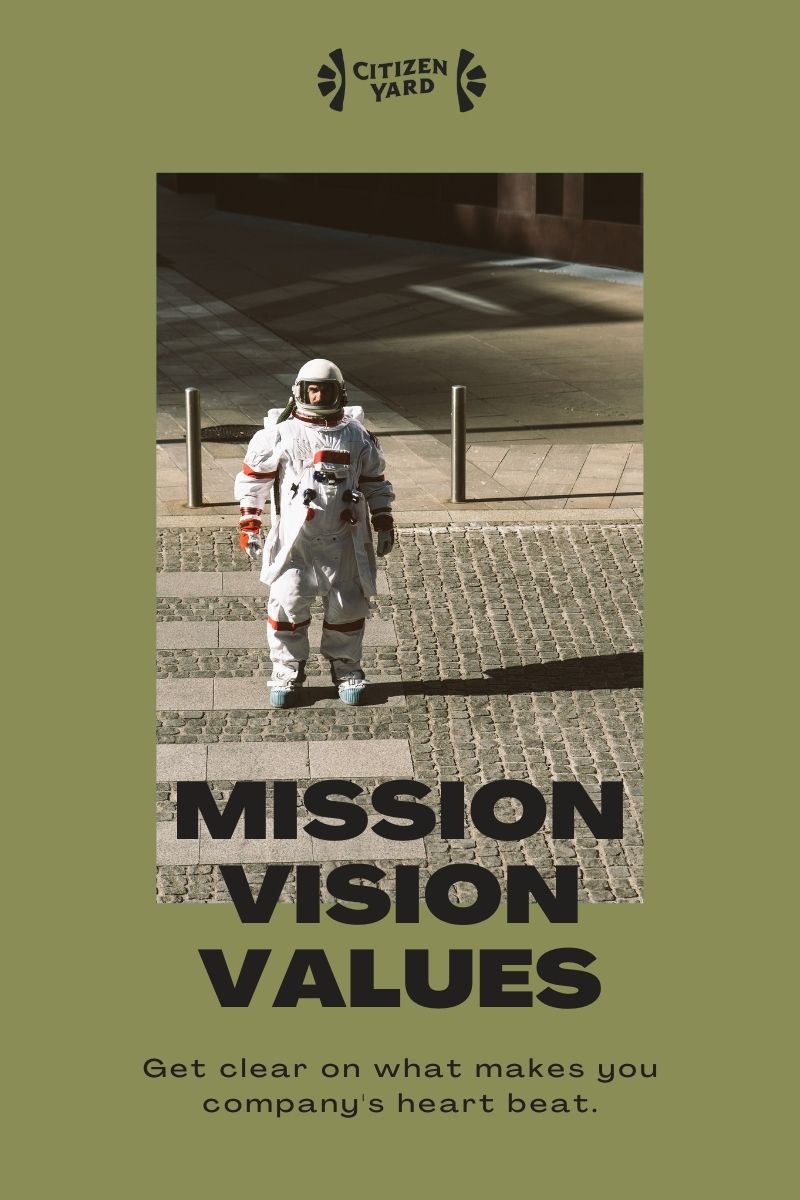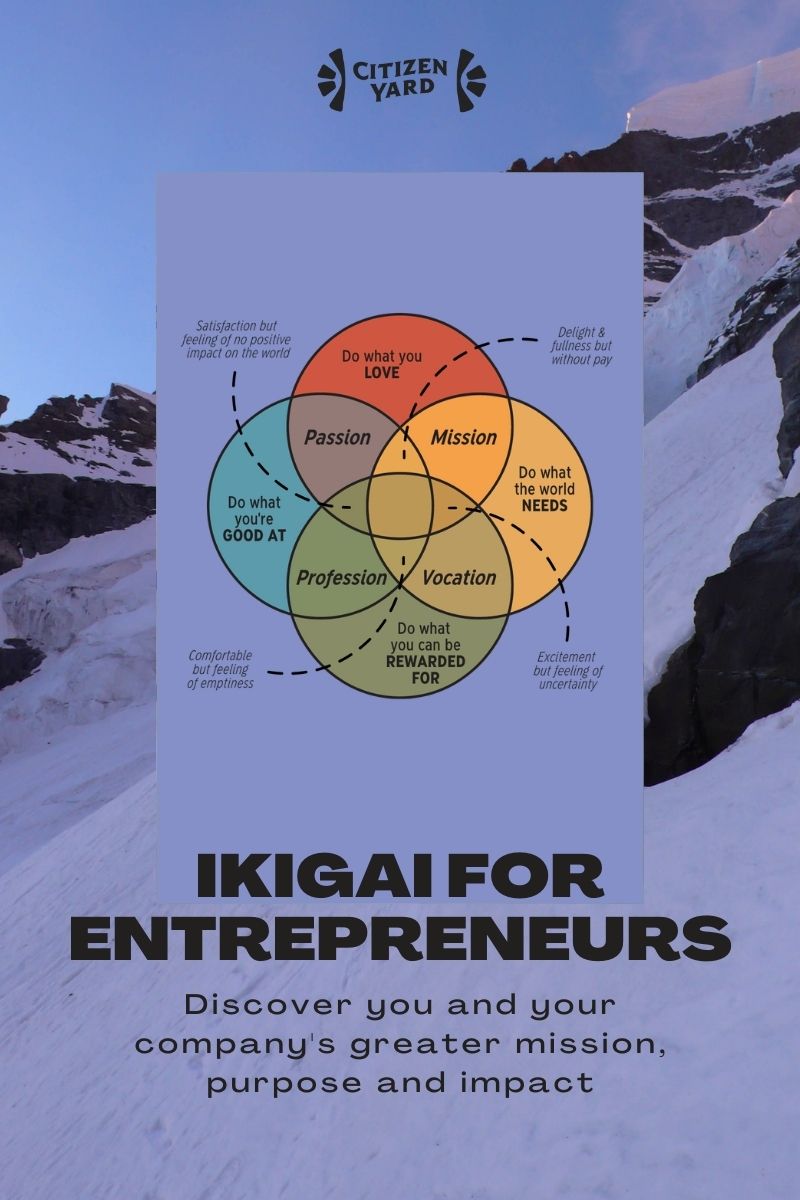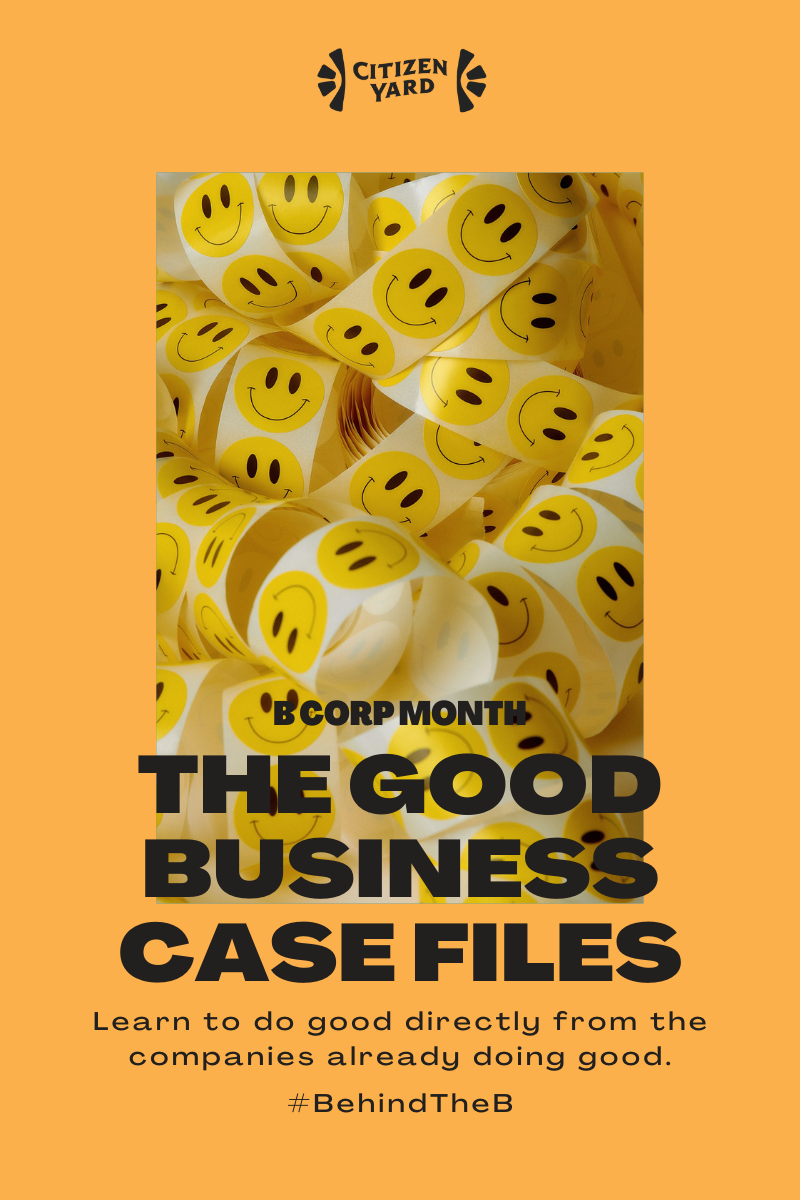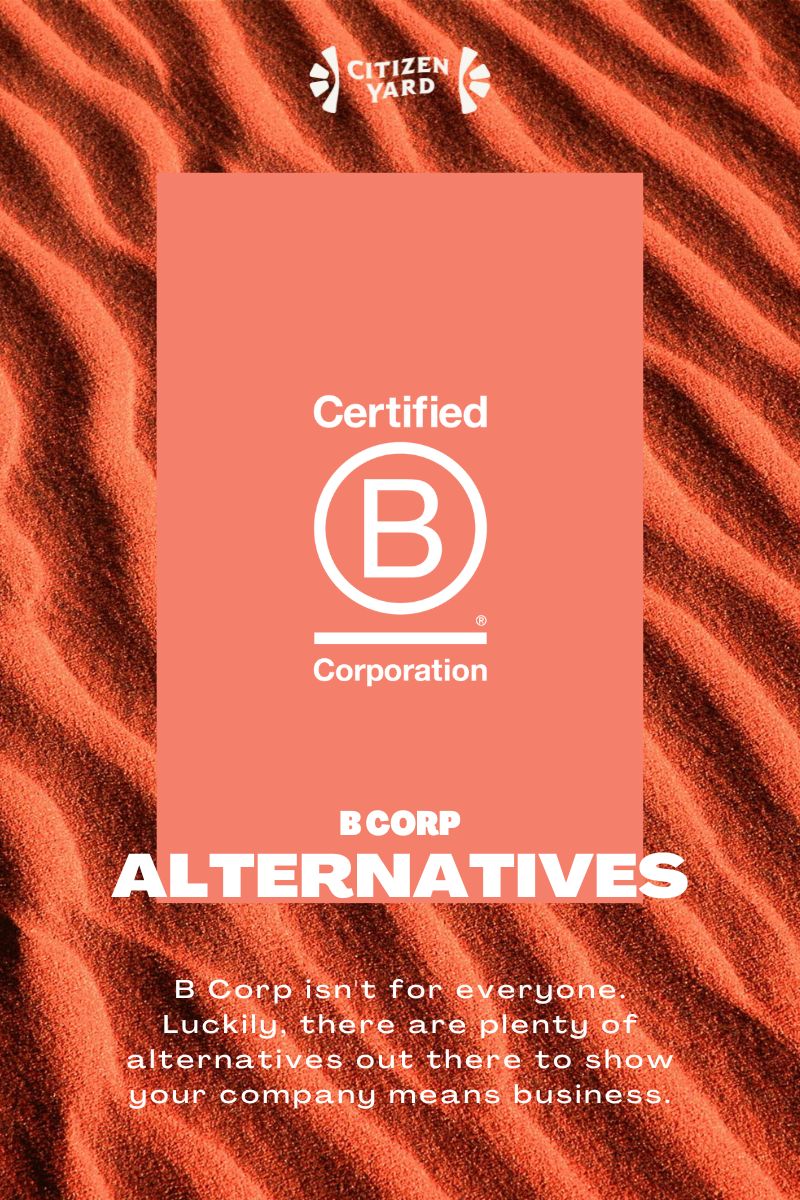
B Corp Alternatives
Table of Contents
Not every organization is meant to become a B Corp.
There I said it.
Yes, while it would be nice if every company could become a B Corp, not every company can become a B Corp.
For instance, nonprofit organizations can’t become B Corps. For others, their company may operate in an industry with a tarnished past making B Corp Certification much more difficult. Or perhaps their organization wants to focus on just one area of impact and do that one area really well.
Another growing issue is the cost.
With a minimum $2,000 a year price tag, B Corp may not be an option for micro organizations who simply have to allocate funds elsewhere.
Which is why today we’re looking at alternatives to B Corp Certification, so you can still signal to customers that your company means business about making a social and environmental impact.
B Corp Alternatives
Let’s look at some alternatives to B Corp.
Many organizations pursue B Corp Certification for the clout. Let’s face it, being B Corp Certified comes with some substantial leveraging power. Being certified signals to others that your company can back up its marketing claims and that you’re not just one more company greenwashing, purpose washing or woke-washing.
Each of the following B Corp alternatives mentioned was chosen because they give comparable signaling power and legitimacy to your business’s impact actions.
Not to be confused with B Corp, benefit corporations are a completely different beast.
While B Corp is a certification, a benefit corporation is a type of corporate entity — such as a sole proprietorship, LLC or S corporation.
By filing your company as a benefit corporation, you’re legally indoctrinating a positive impact on workers, society, the community, and the environment, as well as profits into your company. In essence, you’re stating that the “best interest of the corporation” is to have a positive impact on all stakeholders.
Deciding to become a benefit corporation becomes even more imperative if you plan to introduce investors and shareholders into your company. It lets them know right from the start that you may sacrifice the direct profitability of a business decision if said decision is exponentially harmful to another stakeholder. While this will undoubtedly turn a number of potential investors off, it will leave you with the ones right for your company.
Pros:
- A straightforward process for most companies
- Keep all the benefits of traditional corporations such as tax deductions
- More freedom to create social good by not requriring a single goal of maximizing the profit of shareholders
Cons:
- Not available in all 50 states
- More formalities and paperwork in the form of annual reports and maintaining a board of directors
COST:
State filing fees: vary by state but typically less than $100
There’s a reason a large number of Certified B Corps are also 1% for the Planet members.
1% for the Planet is a membership and “global network of businesses, individuals and nonprofit organizations tackling our planet’s most pressing environmental issues.” It was founded by Yvon Chounard, the founder of Patagonia.
Becoming a member is a great way to put your money where your mouth is as it requires you to contribute at least 1% of your company’s annual revenue to environmental causes.
1FTP takes the guesswork out of charitable giving. Each of the 4,000 environmental organizations in their network has undergone a strenuous vetting process so you can be assured your donation is going to a worthwhile cause.
Another perk of 1FTP is their global recognition and engaged community.
While there are annual dues associated with 1FTP, they are very small business friendly starting at $500.
Pros:
- License to use 1% for the Planet logo on product and branding materials
- An active and engaged community with networking opportunities
Cons:
- Focuses solely on environmental impact
COST:
Annual dues: starting at $500Donate 1% of profits
In the mission-driven business world, sustainability and environmental activism is kinda the sexy one. It’s easy to find companies pushing a sustainable agenda. But move deeper into the space and you’ll find the She’s All That wallflower hiding in the background in the form of worker advocacy.
This is where GoodWell comes in.
“GoodWell helps employers align values with actions to build engaged, equitable and humane workplaces.” — Goodwell
Using artificial intelligence, GoodWell analyzes your workforce data to give you a clear picture of your organization’s loyalty & engagements, pay equity, people & benefits and DEI.
Pros:
- Good for companies that want to focus on worker impact
- Analytics tools
- Custom/flexible pricing
Cons:
- Requires your company to have a workforce (sorry solopreneurs...)
COST:
Annual fee: $150/year
$24 per employee/year
B1G1 is another B Corp alternative you probably haven’t heard of.
While it isn’t as globally recognized as B Corp, B1G1’s mission is very similar but focuses more on achieving its goals through charitable giving.
The real beauty of B1G1 is in the how. They break creating impact down into small micro-actions and then connect it to your company’s everyday actions, so you can make an impact simply by sending an email.
It works like this: you choose which of B1G1’s global causes you want to give to, then you select a business action which triggers the giving — for example sending an email — and then assign the monetary value your company will give when that action is performed. Donations start as low as 1 cent.
Companies are required to pay an annual fee to retain status, though starting at $365/year it is much less expensive than B Corp’s annual dues.
B1G1 has an active community of like-minded entrepreneurs who regularly come together for masterminds and conferences.
Pros:
- You’re in control of how much you give
- An engaged and active community to begin connecting directly with other like-minded organizations
- License to use B1G1 logo on product and branding materials
- Tools to track your giving Tools to tell your giving story
Cons:
- Does not require an amendment of business systems
- Low or no acocuntability
- Easy to misrepresent your company's actual impact
COST:
Annual dues: start at $365/year Your chosen donation amount
Fairtrade is a certification not for the faint of heart. But its standards set a new bar for what global commerce could look like.
In the era of globalization, farmers and small producers in developing nations often get the short end of the stick. Fairtrade gears to end that. Their approach is to ensure the backbone suppliers from developing nations are given better prices, fairer deals and good working conditions. It ensures farmers and workers have more control over their lives and futures.
A product bearing Fairtrade’s logo means the business and producer behind the product meet internationally agreed standards that have been independently verified. And the standards at Fairtrade aren’t subpar — they’re elite.
To become Fairtrade Certified, a product must meet a stringent set of economic, environmental and social criteria. This includes paying producers the Fairtrade Minimum Price for goods, which not only covers a farmer’s cost to produce the product sustainably but also supplies additional money to invest in improving the quality of their products, businesses and communities. Fairtrade standards also put guardrails on forced labor, gender equity and child labor.
What Fairtrade does well is giving a voice to the farmers and producers who — as a key stakeholder — have an equal say in how Fairtrade is run. It encourages global cooperation between developed and developing nations to encourage collective collaboration.
Pros:
- High-quality of standards ensures true impact is created
- Outstanding reputation
- Liscence to use Fairtrade logo on product and brand materials
- Covers all the ESG bases
Cons:
- High fees
- Requires a high time commitment to implement
COST:
Varies: See the Fairtrade Minimum and Premium Price Information
Use the cost calculator to get an estimate: international caluculator and America specific
Climate Neutral
Climate Neutral certification is currently having its moment in the sun. The popular label is showing up on product-based brands such as REI and Avocado Matress to service-based brands like Surefoot and Ski Utah.
Climate Neutral Certification equips brands with the necessary resources and guidance to neutralize carbon emission in their business operations and product development, and to even eliminate them altogether where possible. They do this through a five-step approach:
Measure emissions
Offset emissions
Reduce emissions with a Reduction Action Plan
Display information publicly on the Climate Neutral website
Stay up to date as standards change
Once a brand is certified, the Climate Neutral Certified label can then be used in marketing and product materials.
An interesting aspect of Climate Neutral Certification is their incentivization to action; the more you reduce your company’s carbon footprint, the less you pay for certification.
Not sure if you’re ready to go neutral. No problem.
Climate Neutral provides free access for all to their Brand Emissions Estimator, dubbed The BEE. By creating an account you can get a free estimation of Scope 1, 2 and 3 emissions as well as data analysis on potential areas of improvement.
Pros:
- License label for marketing
- Marketing, communication and reduction tools
- Carbon tracking tool
- Exclusive collaborative community
- Committed program
- BONUS: Offset carbon purchase counts towards the 1% contribution for 1% for the Planet members
Cons:
- Only available at the brand level
COST:
Annual fee minimum: $750
Carbon offsets: budget of 0.5-1% of revenues for carbon offsets (approx. $8-20 per tonne of footprint for offsets)
View full pricing
Leaping Bunny
B Corp Pending & BIA
Wrap Up
Ready to get started? Here’s your recap of the B Corp Certification process:
STEP 1: Sign up for the B Impact Assessment
STEP 2: Use our tools to help you in work impact & mission into your business
STEP 3: Complete the BIA Quick Scan
In the end, becoming a B Corp isn’t about achieving ethical perfection.
It’s about actively trying to do better with each and every business decision.
Just the consideration of taking your business down this path is a step toward something better and working collaboratively toward a brighter future.
Resources
These are some of the tools we used to bolster our own knowledge about B Corps.
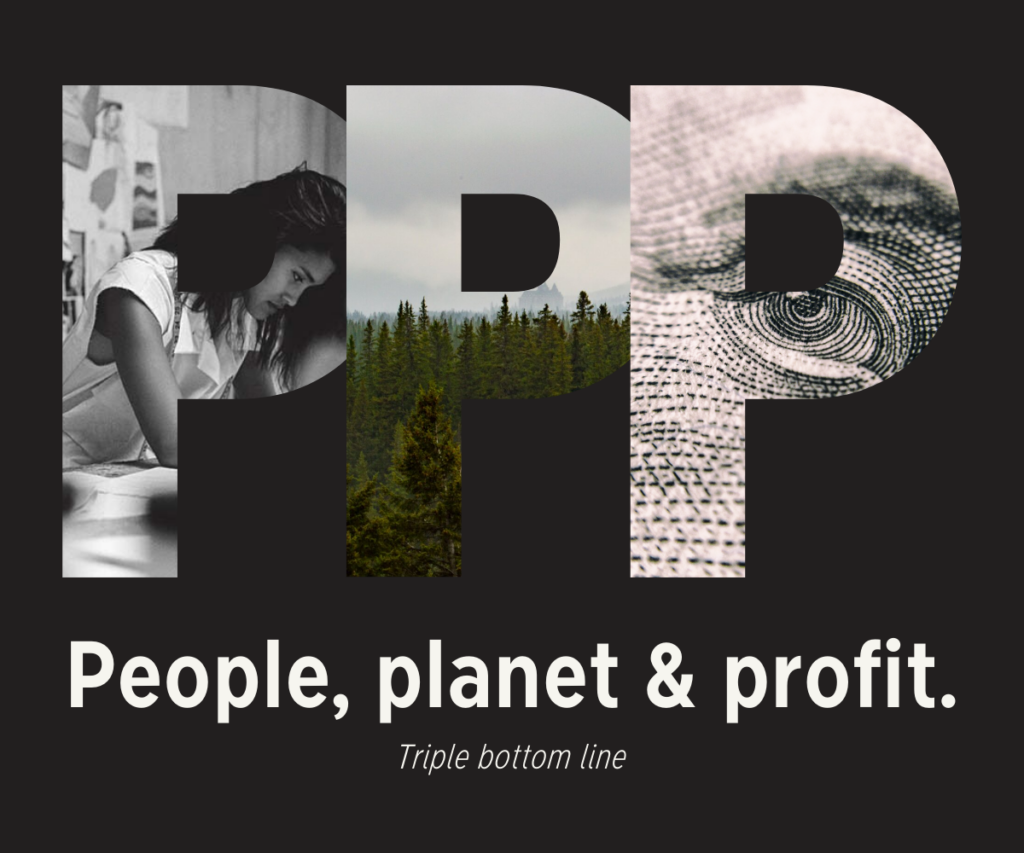
"They’re looking beyond tangible products and actually trying to understand what is it that makes the company tick. What’s its mission? What’s its purpose? And what is it actually trying to build for us as a society?”
— Bo Finneman
Share :
Key Takeaway
B Corp is an intensive process that requires thought & strategy. It’s not for everyone and that’s okay. There are plenty of B Corp alternatives to suit any style of business that will equally communicate your company’s commitment to better business.
Next Up
Join our weekly Backyard Tailgate, a newsletter to help brands live out their mission & lead with purpose.
Each Tuesday we visit your inbox to share what we’ve learned on our own impact journey, resources, tips & tricks and introduce you to some of our world changing friends. We keep it real. We keep it honest. But most importantly, we keep it actionable.
